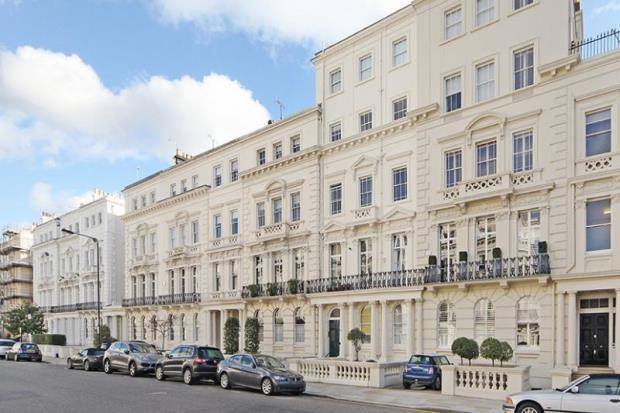The coming spectacle of a Conservative Iron Lady armed with a vast majority built from nostalgia and fear has lured me back to Alan Hollingurst’s novel The Line of Beauty, a prize-winning tale of gay sex, cocaine and invincible Tory swagger set in various places, including, most seductively for me, some evocative parts of 1980s London. The central character is Nick Guest, an innocent young aesthete who lodges in the exquisite Kensington home of a cocksure Thatcherite MP.
Here he is, heading to the Gate cinema on Notting Hill Gate to see Al Pacino in the garishly violent Scarface. He’s in a bus, following his boyfriend Leo who is cycling ahead:
The bus threaded down at last across the Harrow Road and began its long descent of Ladbroke Grove. He pictured Leo whizzing ahead and, and kept losing him in the gleams and shadows of the night traffic. Where was he now? Nick was still in the alien high reach of the road, with the canal and the council estates, and longing for the other end, the safety and aloofness of white stucco and private gardens. He wondered what Leo thought as he made the transition, which occurred at the dense middle part by the market and the station, under clangorous bridges, where people loitered and shouted. After that there was a stretch of uneasy gentility, before the Grove climbed, taking palpable advantage of the hill as a social metaphor, and touching into life the hint of an orchard or thicket in the very name of the street.
A few years on, Mrs T is deep into her second term and Nick has a wealthier, flashier love interest called Wani. They’ve picked someone up at the men’s pond on Hampstead Heath and Nick, driving a sports car, takes a detour past the house in Highgate which was the previous home of the family he lives with. It was being done up:
The house was having a restoration so thorough it looked like demolition. The roof was like another house, made of scaffolding and sheeting. Most of the stucco had been hacked from the walls, and you could see the buried arcs of brick over each window. Through the front door you saw the garden at the back. On the surviving white-stucco pier by the side gate there was a painted black finger and the words TRADESMEN’S ENTRANCE; underneath which, in red spray paint, a wit had written CUNTS ENTRANCE, with an arrow pointing the other way… A workman in overalls and a blue helmet came through the aperture of the front door and stared at them like a janitor, trying to decide if they mattered. They were one of a thousand car-loads of easy wealth that roared and fluttered round London, knocking things down and flinging things up.
And then:
Half an hour later they were creeping down Park Lane. The decisive plunge from the heights had slowed and stalled in the inexhaustible confusion of traffic and roadworks and construction. The wolfish bites had turned into thwarted snaps, the squeals of half a dozen near collisions. Shuddering lorries squeezed them and dared them and flushed their reeking fumes through the coverless car, as four lanes funnelled into one outside the Hilton Hotel. Wani had whisked Nick up one night to the top floor bar of the Hilton, perhaps not fully aware of its glassy vulgarity – it was a place his father liked to take guests to, and there was something touchingly studied in the paying for the cocktails and the lordly gaze out over the parks and the palace and the fur and diamonds of the London night. And now, here they were, trapped, motionless, half asphyxiated on the roadway outside.
The Line of Beauty describes a world I’ve never lived in – I’m not gay, I’m not a Tory, I’m pretty philistine and I’ve never worshipped cocaine – and yet that world and the time it is set in are captured with such skill that it feels very familiar. And, in certain ways, not much changed. I keep my yellowed copy of the novel by my office desk. Not many months pass without my dipping into it . You can buy your own copy here.
